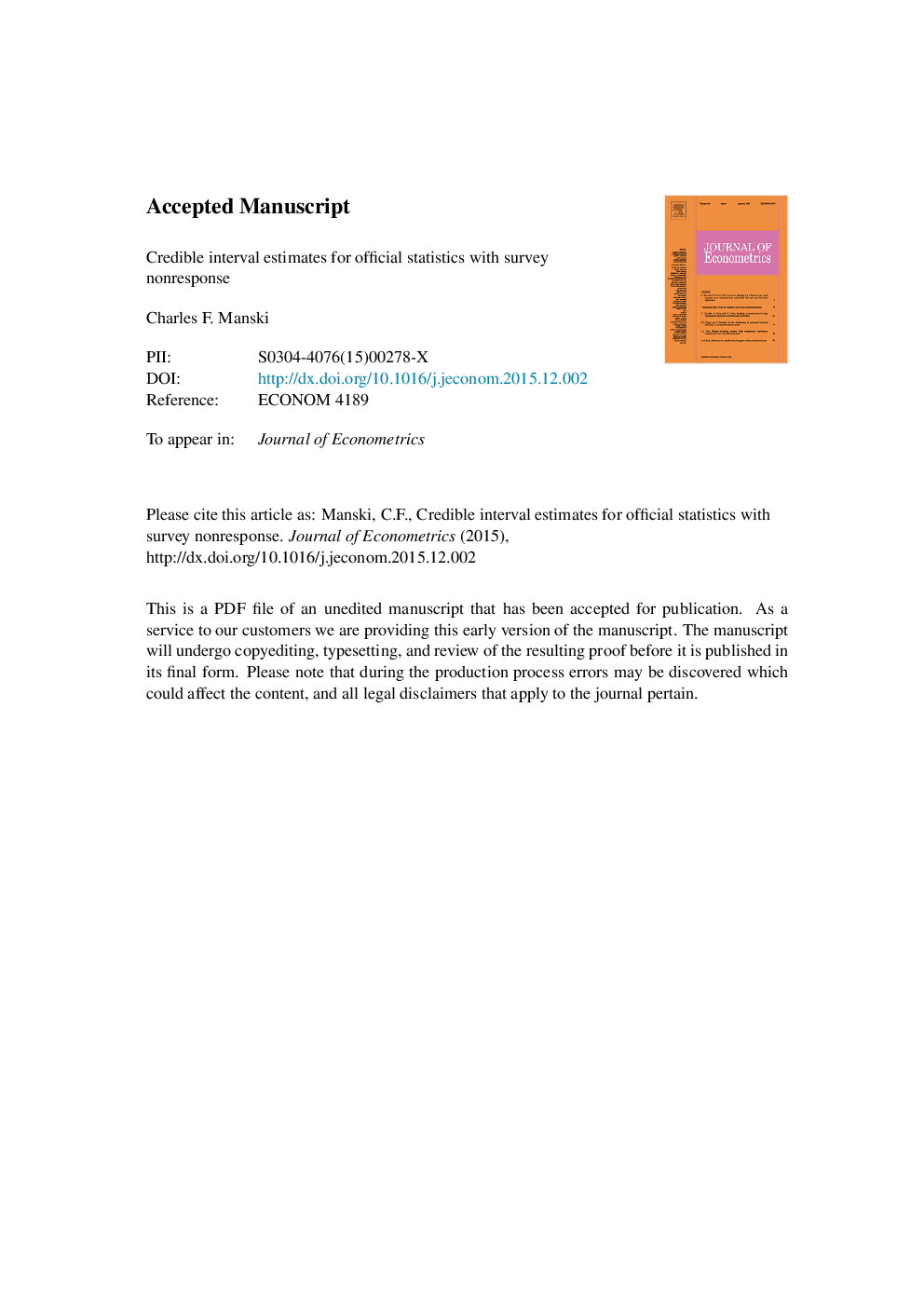| Article ID | Journal | Published Year | Pages | File Type |
|---|---|---|---|---|
| 5095636 | Journal of Econometrics | 2016 | 34 Pages |
Abstract
Government agencies commonly report official statistics based on survey data as point estimates, without accompanying measures of error. Agencies could measure sampling error using established statistical principles, but it is more challenging to measure nonsampling errors. This paper considers error due to survey nonresponse. The standard practice has been to use weights and imputations to implement assumptions that nonresponse is conditionally random. I review modern research deriving interval estimates that make no assumptions about the values of missing data. To demonstrate the implications for official statistics, I use data from the U.S. Current Population Survey to form interval estimates for median household income, the family poverty rate, and the unemployment rate. I then explore some of the middle ground between interval estimation making no assumptions and point estimation assuming that nonresponse is conditionally random.
Related Topics
Physical Sciences and Engineering
Mathematics
Statistics and Probability
Authors
Charles F. Manski,
